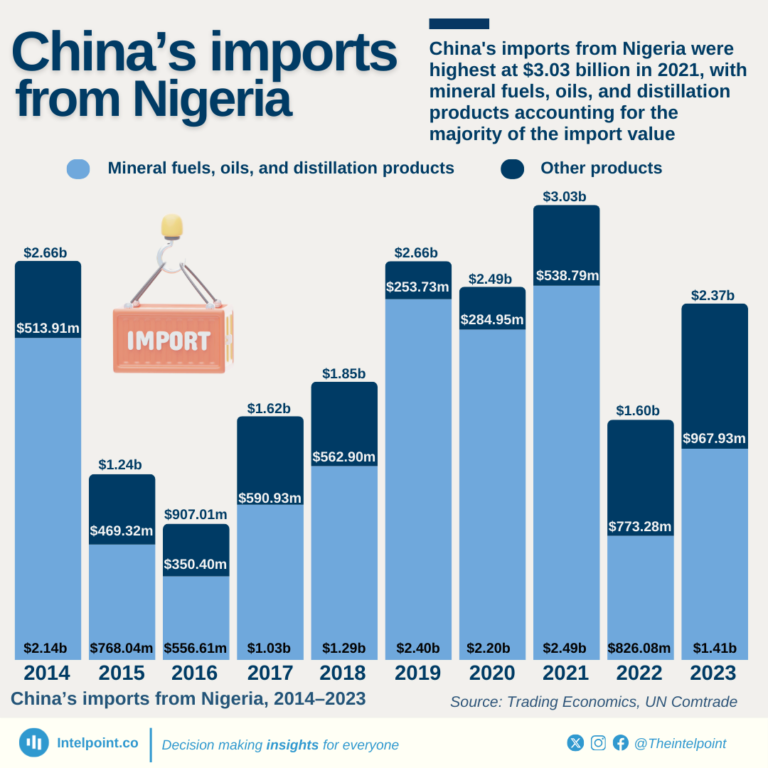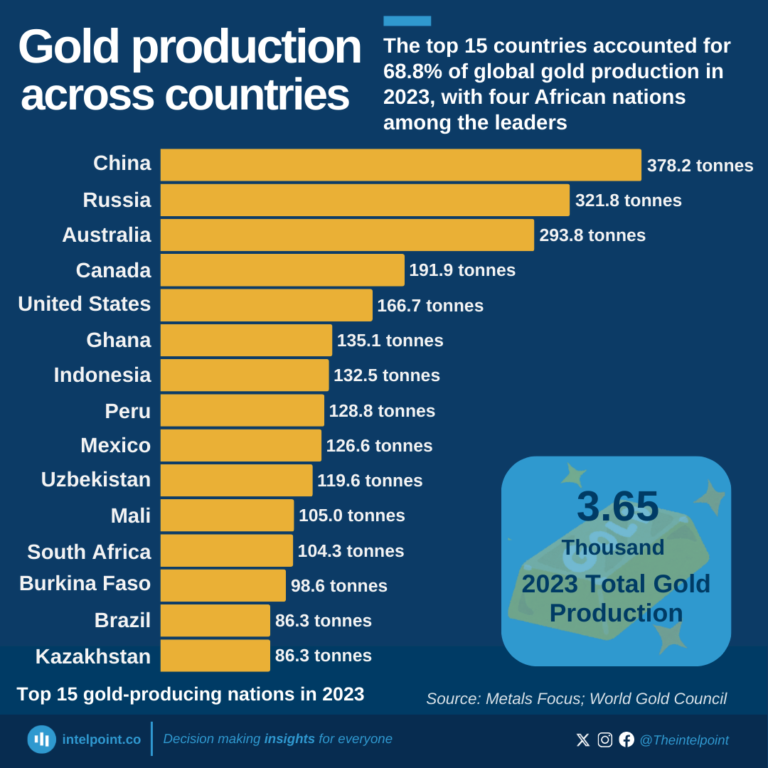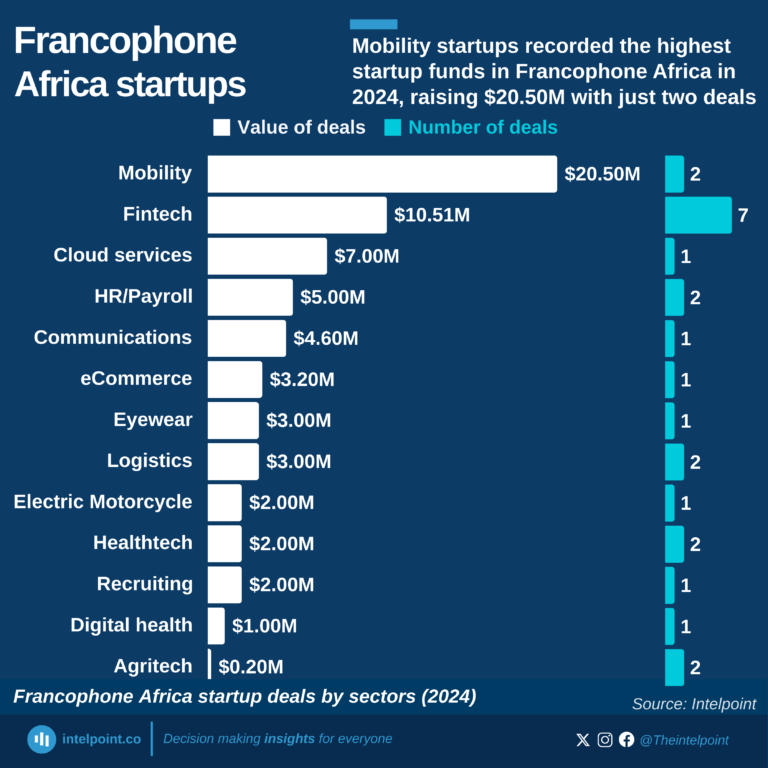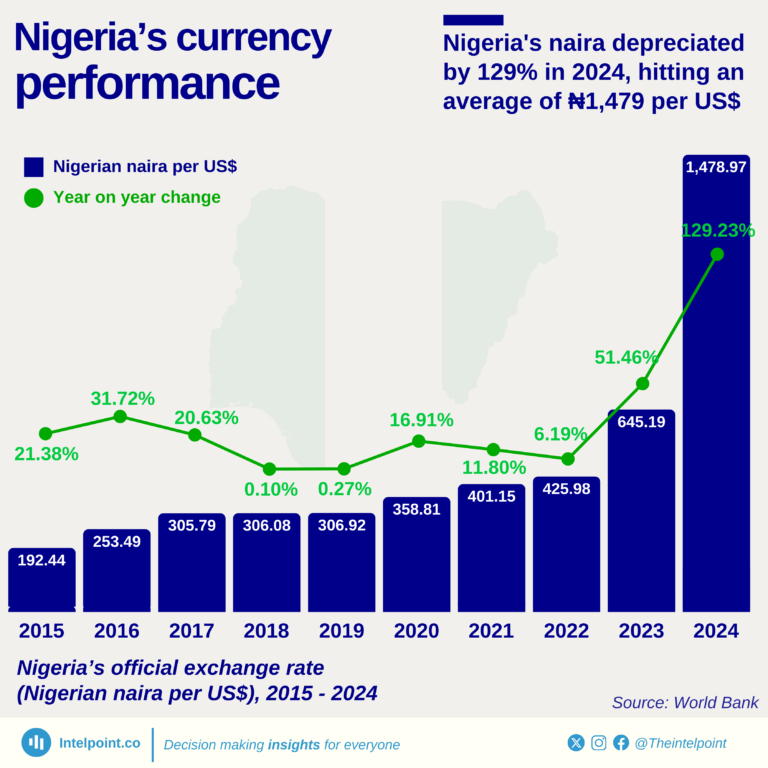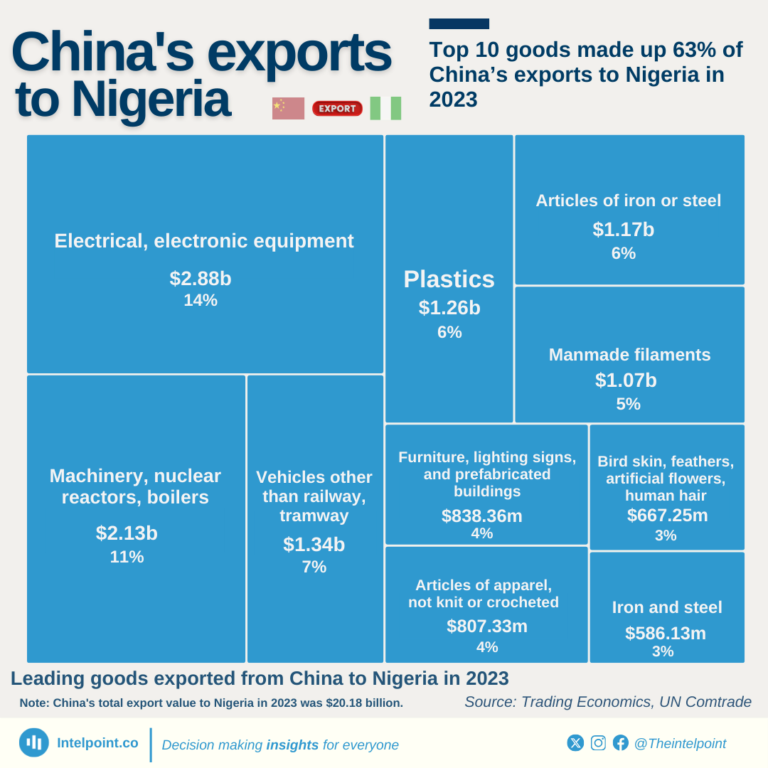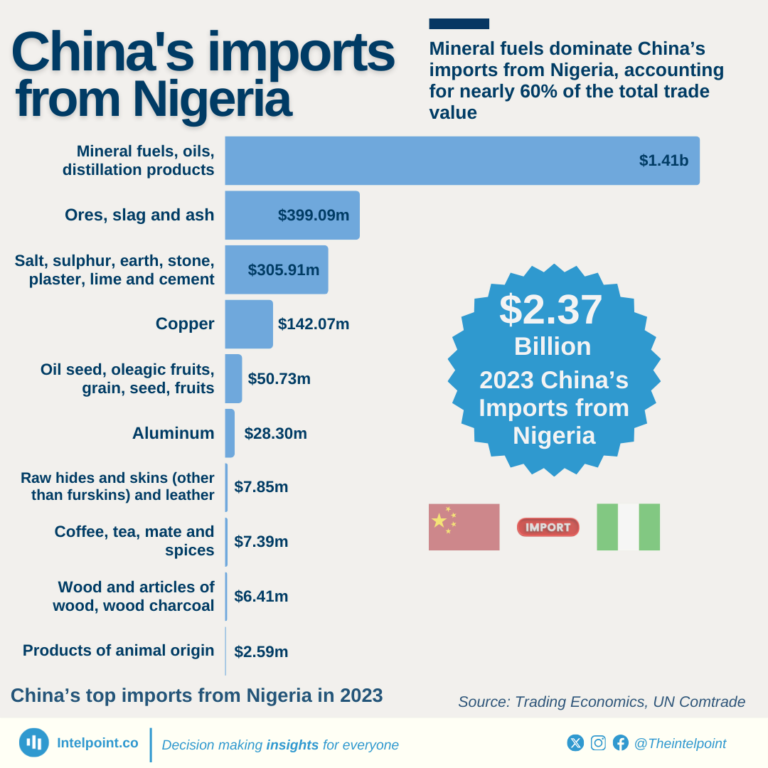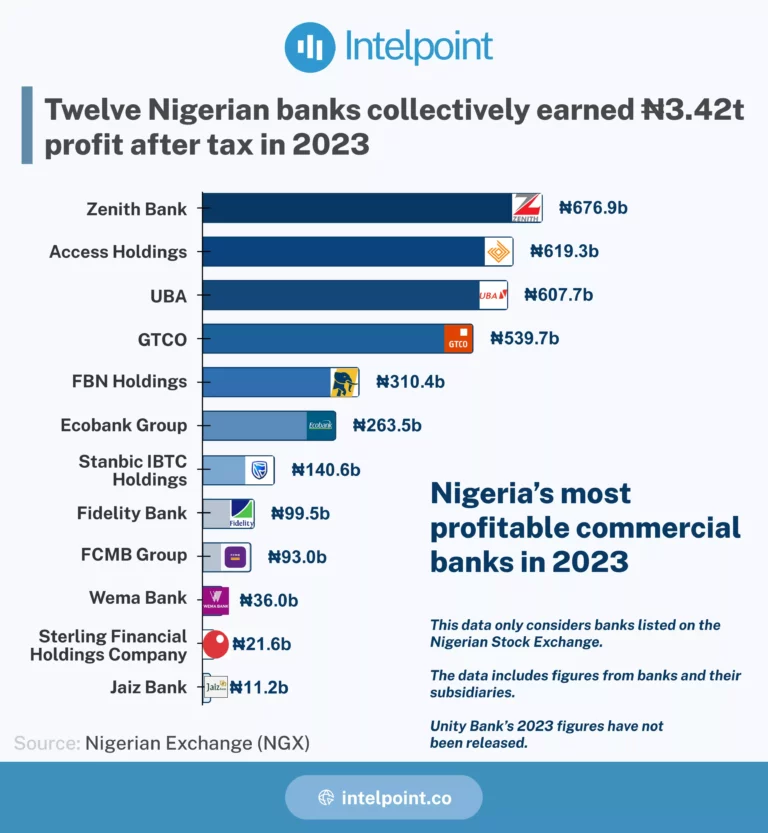
Twelve Nigerian banks listed on the Nigerian Exchange Group (NGX) reported a total profit of ₦3.42 trillion in 2023, with all banks making a profit and seeing increases from 2022. The top four banks — Zenith Bank, Access Holdings, UBA, and GTCO — contributed 71% of this amount. Zenith Bank saw a 202% increase from the previous year and led the way with ₦676.9 billion, while Access Bank recorded the highest increase in profits (307%). Jaiz Bank made the least profit (₦11.2 billion) followed by Sterling Bank (₦21.6 billion) and Wema Bank (₦36 billion).
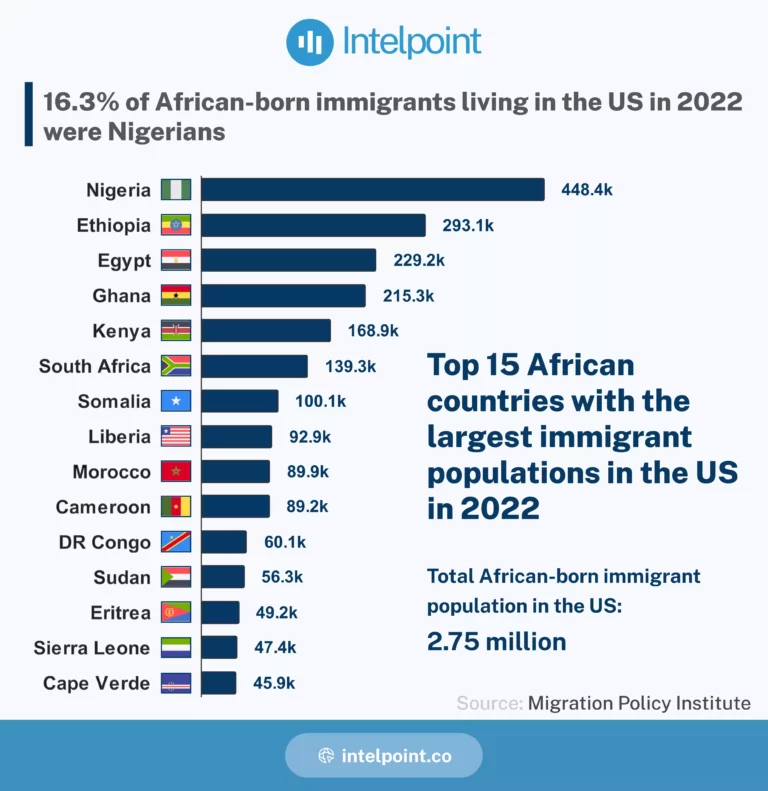
In 2022, the US hosted a diverse African immigrant community, totaling over 2.75 million. Nigerians make up the largest group at 448,405 (16.3%), followed by Ethiopians (10.6%), Egyptians (8.3%), and Ghanaians (7.8%).
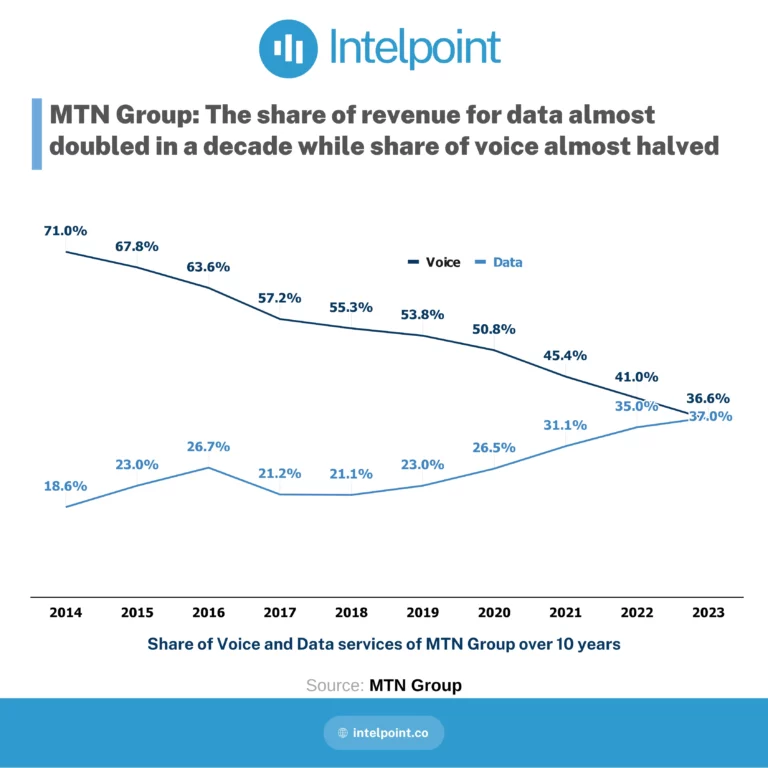
MTN Group's share of voice revenue has steadily declined since 2014, falling from 71% to 36.6% in 2023. On the other hand, data services' share went from 18.6% to 37% in the same period.
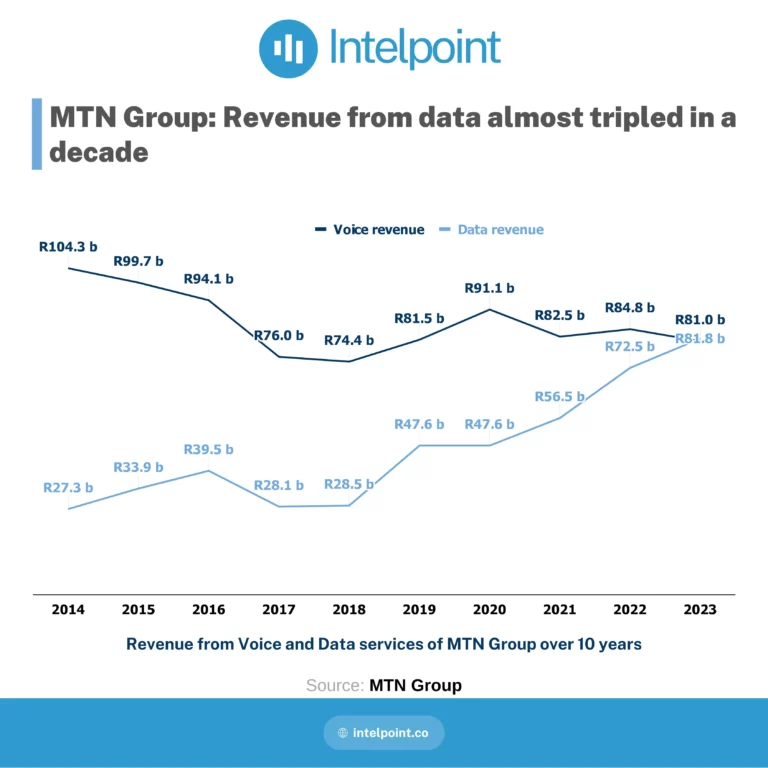
MTN Group's revenue of ZAR104.3b from voice services in 2014 dropped to ZAR81b in 2023, with data services revenue almost tripling within the same period. With increasing digital inclusion, data service is definitely the future for telcos.
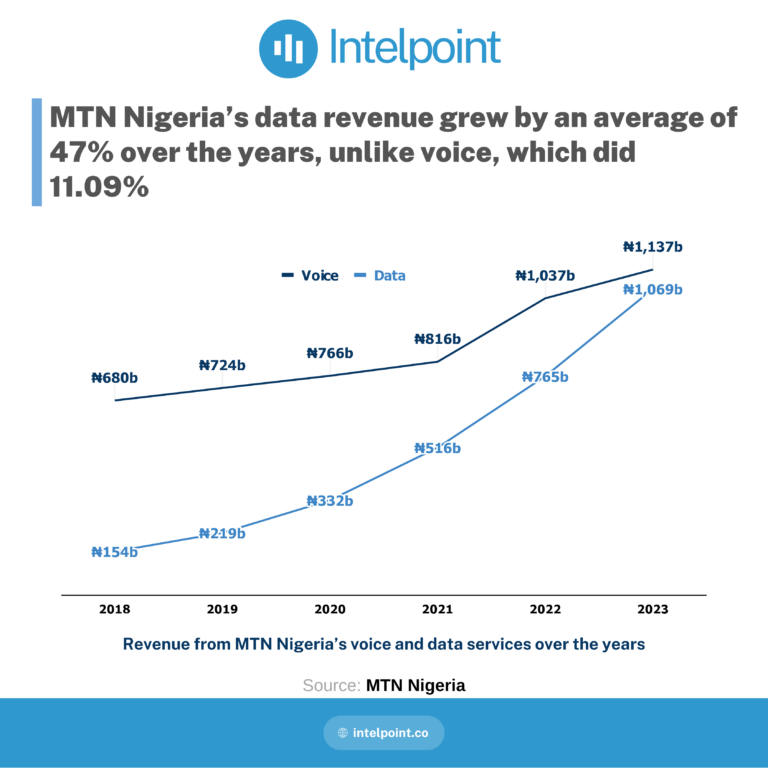

From 2006 to 2022, the Nigerian-born immigrant population in the US saw significant growth, increasing from 197.5k to 448.4k. This figure reflects almost a 1% share of the total foreign-born population in the US, which reached 46.2m in 2022.
Notably, the most rapid increases occurred between 2014 and 2022, with the Nigerian immigrant population jumping from 264.4k to 448.4k.

A recent UNICEF report shows that 293m children worldwide did not have drinking water in their schools in 2023. Six African and four Asian countries make up the top ten, with Ethiopia and Nigeria occupying first and second positions, respectively, with 33.2m and 29m children.
The top five countries account for 42% of the total affected population.

Bitcoin has seen remarkable growth since 2010. Starting from a high of just $0.5 in 2010, it reached an all-time high of $73.7k in March 2024.
It recorded new peaks in 2011, 2013, 2017, 2020, 2021, and recently in 2024.

As of December 2023, Indians accounted for one in three holders of Canadian work permits, representing 32% of the total (1.76 million). Ukraine followed with almost 10%. Nigeria came 8th, with 2% of the permit holders.

As of December 2023, more than 36,000 Nigerians — 2% of the global holders — had Canadian work permits. This number represented a 118% rise from December 2022.
Nigeria's share of the total peaked in December 2018 at 2.4%.
N.B. The number of global holders of the Canadian work permit increased by 60% in 2023.
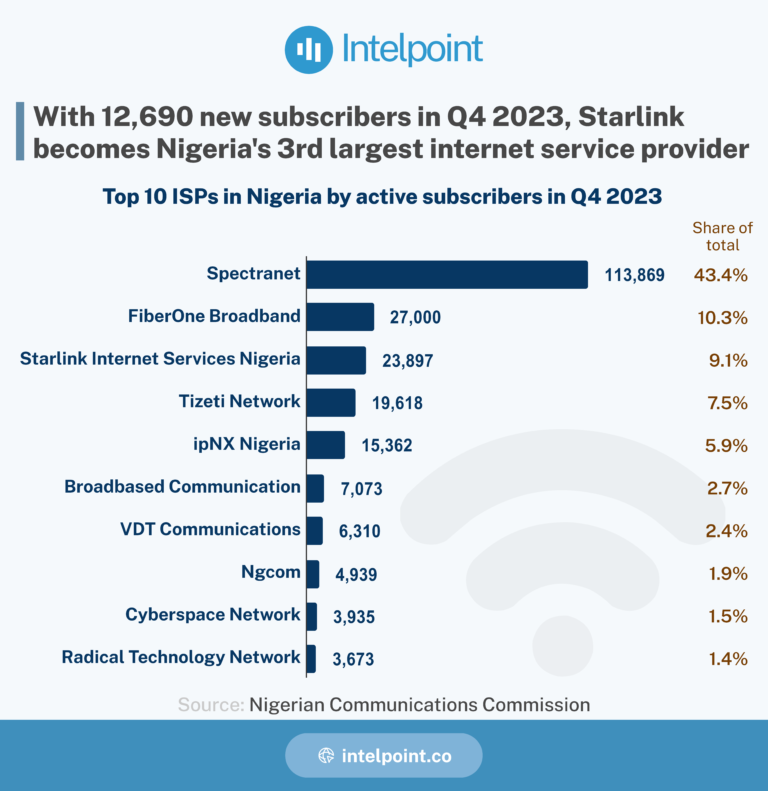
In Q4 2023, Spectranet maintained its top position as Nigeria's biggest internet service provider with nearly 114k active subscribers, holding 43% of the market share. FiberOne followed with 10% of the market.
Starlink increased its subscriber base by 113% to claim the 3rd position with 9% of the market.
Here are Nigeria's top internet service providers by active subscribers in Q4 2023.
